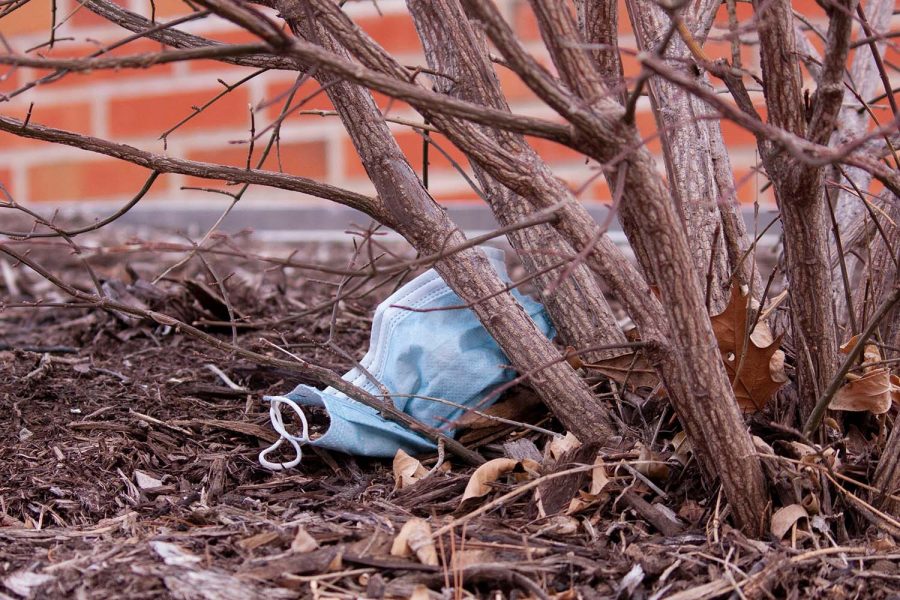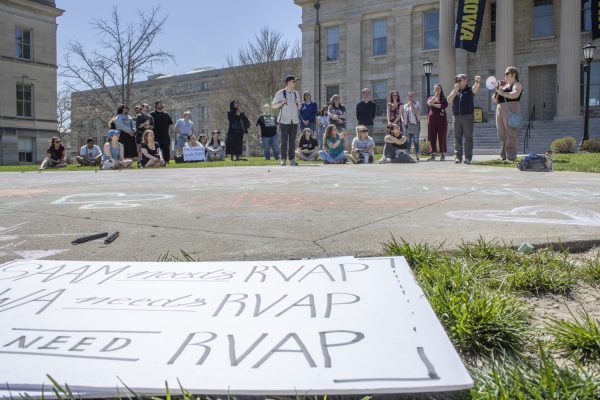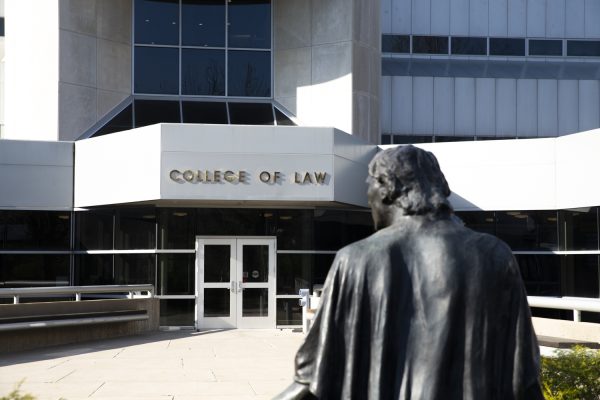University of Iowa students seek sustainable mask options on campus
University of Iowa students and the Undergraduate Student Government are asking for more sustainable mask options on campus.
A disposable mask is seen on the University of Iowa campus in Iowa City on Feb. 10, 2022. Due to an increasing amount of disposable masks being found on campus, the Undergraduate Student Government looks towards more sustainable solutions.
February 10, 2022
University of Iowa students and Undergraduate Student Government are advocating to implement more sustainable campus mask options.
Some UI students are concerned about the plastic in each individual KN95 and N95 mask that are offered at health stations around campus.
“There’s over 20,000 students at the university, so if everyone uses a disposable mask, that’s over 20,000 every day,” Rylee Reid, UI first-year student, said. “All of that ends up going into a landfill or eventually going into the ocean, which affects marine and animal life.”
Reid is working with Libbie Smith, USG director of sustainability, to find more sustainable campus mask options.
The two students reached out to Angie Reams, UI Associate Vice President and Dean of Students, and the UI Office of Sustainability to discuss ways for the campus to adopt environmentally conscious policies, such as a mask recycling program.
Stratis Giannakouros, UI director of the Office of Sustainability and the Environment, said recycling masks is most likely not a feasible option for the university because KN95 and N95 masks protect against the coronavirus so well, and those masks are not recyclable.
He said he doesn’t know of any other sustainable masks that have the same benefits that KN95 and N95 masks do.
“The challenge we’re facing right now is that with the omicron variant, using cloth masks are ineffective, and KN95 and N95 masks that are available are not recyclable,” Giannakouros said. “There are no sustainable alternatives out there as far as I can tell that have the same function.”
RELATED: N95s, KN95s best mask for protecting against COVID-19 on campus, experts say
Giannakouros said KN95 and N95 masks are made of composite materials. There are metals, cotton, and polypropylene number five plastics. To be recycled, the mask has to be separated, and the polypropylene removed.
He said material composition is not the only barrier that is in the way of possible mask recycling policies on campus.
Smith said she is an advocate for masks that aren’t packaged in single-use plastic.
“The thing with mask recycling is that it sounds great on paper but if you’re transporting masks to a different facility then you have the carbon footprint to think about as well,” Smith said.
Smith said an alternative solution is setting up packages of multiple masks at once for students to pick up at the Iowa Memorial Union weekly.
Reid and Smith plan on working with student government members on the finance and health and safety commissions to propose legislation in the future.
Giannakouros said he hopes that students aren’t deterred from wearing KN95 and N95 masks because of a desire for more sustainability.
“The biggest thing students can do from the office’s perspective is to not forgo using a mask for environmental considerations during the pandemic,” Giannakouros said.














